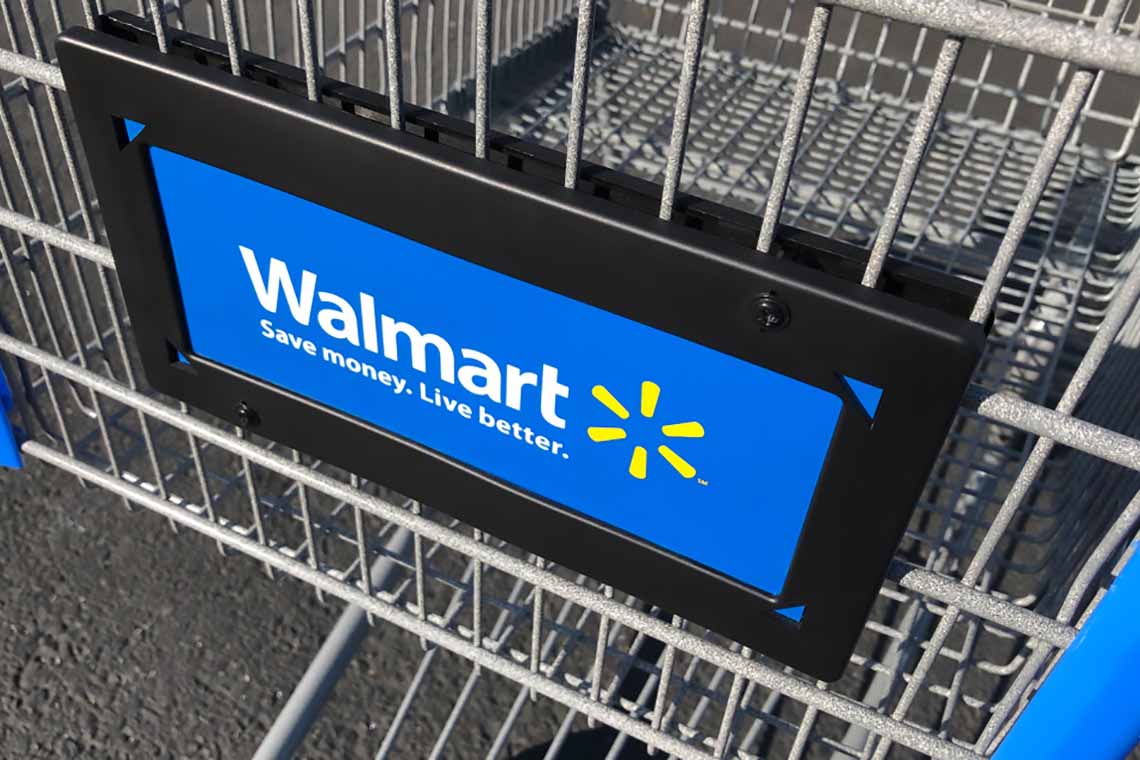
With its latest sustainability report, Walmart became the latest mega-brand to announce it was unlikely to meet its voluntary commitments for plastics. | Harun Ozmen/Shutterstock
With the arrival of the benchmark year of 2025, two industry giants announced challenges and progress in meeting the ambitious plastics-related goals set for this year.
In its recently released 2023 sustainability report, retailer Walmart joined the likes of Coca-Cola and Mars in announcing it was unlikely to meet its 2025 goals for recycled content, virgin plastic reduction and packaging recyclability despite making “significant progress.”
Walmart cited a “global shortage of recycled materials that has increasingly made it difficult to source recycled feedstock in quantities and price points that support our recycled content and plastic reduction goals.” The company noted that it expected recycled content to cost significantly more than virgin “well into the future.”
With goals of 17-20% of plastic packaging made from PCR by 2025, the massive retailer was at 8% for 2023, higher by 1 point from the previous year.
Despite the disappointing progress, Walmart pointed to its other waste-reduction programs, including its Resold at Walmart platform that sells pre-owned and refurbished goods, its pilot programs for electronics trade-in/takeback and its partnership with Trashie for apparel “to learn about customer interest in repurposing textiles.”
“While we continue to work towards reducing waste, progress depends on many factors outside our control, including emergence and scalability of innovative more-recyclable materials, public policy for materials management systems, infrastructure development (especially to support recyclable and compostable materials), and societal behavior change,” the report said.
Berry Global halfway to 2025 PCR goal
In 2024, Berry Global – which is being acquired by Amcor – increased its purchases of PCR by 43% on the year, according to its annual sustainability report. As a result, PCR represented 5.1% of Berry’s total plastics volumes in 2024, higher by 1.5 points on the year. The company is aiming for 10% PCR across its consumer goods packaging in 2025.
For 2024, circular plastics comprised 11% of total resin usage, higher by 1.3 points on the year. Berry aims to reach a level of 30% circular plastics across its consumer goods packaging by 2030. Berry defines circular plastics as PCR, post-industrial resin and bioplastics, according to Robert Flores, vice president of sustainability.
Recycled resin – consisting of PCR and post-industrial resin – consumption was flat on the year at 9.1% of total volumes. The company noted that it includes chemically recycled plastics in its PCR totals. Berry acknowledged that the process may incorporate both PCR and PIR but condenses such materials in one category due to insufficient transparency on plastic origins.
Also in the year, 85% of Berry products were reusable, recyclable or compostable, nearing the 2025 goal of 100%.
In February, Berry and global snack food giant Mars announced the launch of candy jars made of 100% mechanically recycled plastic sourced from curbside collection. However, the lids are not included in that 100%, and the press release didn’t specify what material was used. The company also highlighted its 2023 redesign of Heinz ketchup lids, which now are made of mono-material PP rather than incorporating silicone, to increase recyclability.
The annual report featured a case study from its Europe flexible packaging division. In 2024, the division increased PCR consumption by 4,386 tons, or 36% higher on the year. Some of these volumes were PE sourced internally from the company’s recycling facilities in Germany and the U.K.
The company used the PCR in flexible film products including heavy-duty sacks used in the construction and chemical industries, and it incorporated PCR into agricultural stretch film for the first time.
A version of this story appeared in Plastics Recycling Update on Apr. 9.

